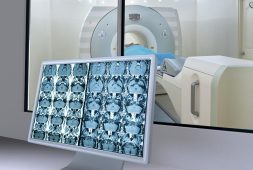
Is the nutritional value of tomatoes, avocados, and nuts universally beneficial? According to Viome, a leading health tech company, the concept of universally healthy foods is a fallacy. What may promote well-being in one individual could potentially trigger inflammation in another.
In response to the escalating global prevalence of chronic diseases, Naveen Jain, the visionary founder of Viome, recognized the imperative to address the issue through preventive measures. Jain brought together a team of accomplished scientists to establish a groundbreaking company dedicated to unraveling the mysteries of inflammation, the underlying cause of numerous chronic illnesses and a host of related symptoms such as bloating, insomnia, skin issues, digestive problems, fatigue, joint pain, and more.
Viome’s innovative approach involves analyzing an individual’s gut health to comprehensively understand the factors contributing to inflammation. By utilizing a convenient home test kit, Viome can unveil the intricacies of your body’s internal processes and prescribe a tailored regimen of foods and supplements to optimize your overall performance.
The core technology employed by Viome is meta-transcriptome sequencing, a cutting-edge method that provides high-resolution insights into the diverse array of microorganisms residing in the gut. This includes an examination of bacteria, viruses, fungi, yeast, parasites, and bacteriophages. Armed with this detailed data, Viome can offer personalized recommendations for foods and supplements that align with your unique microbial profile, ultimately steering you towards achieving peak microbial function and overall well-being.
9 Surprising Discoveries from Viome:
1. “Healthy” Food Isn’t a One-Size-Fits-All

You may have heard the advice to include greens and nuts in your diet for their anti-inflammatory properties, but recent data challenges the universality of this recommendation.
Foods such as spinach, bran, rhubarb, beets, nuts, and nut butters all contain Oxalates. It is now understood that Oxalate-containing foods can pose a risk unless the necessary microbes are present to metabolize them into non-harmful substances. Surprisingly, 30% of the 530,000 Viome customers analyzed thus far lack the essential microbes for proper oxalate metabolism. In practical terms, what are traditionally considered “healthy foods,” like spinach, may not be beneficial for these individuals.
2. Too Much Protein?
Diets such as Paleo, Keto, and high-performance plans emphasize a significant intake of protein for muscle building and energy. However, excessive protein consumption in some individuals may lead to inflammation and a potential decrease in longevity.
Viome takes a closer look at your microbiome to assess whether your protein intake is fostering the growth of protein-fermenting bacteria like Alistipes putredinis and Tanneralla forsythia. Additionally, Viome examines whether these microorganisms are producing detrimental substances such as ammonia, hydrogen sulfide, p-cresol, or putrescine, which have the potential to harm your gut lining.
3. Can “Healthy Foods” Worsen Heart Disease?
Certain foods contain choline, which can be transformed by bacteria into trimethylamine (TMA), a substance linked to heart disease upon absorption and conversion to TMAO in the body. The conversion of TMA is contingent on the presence of specific bacteria in an individual’s microbiome. Viome has the capability to detect TMA production and identify many of the gamma-proteobacteria responsible for this conversion.
Examples of foods rich in choline include liver, salmon, chickpeas, split peas, eggs, navy beans, and peanuts. If you’re considering adopting a pescatarian or paleo diet, it’s advisable to assess whether your microbiome is producing TMA in response to the consumption of items like salmon or steak.
4. Can Taking Too Much Iron Cause Inflammation?
Certain inflammatory microbial conditions can encourage the proliferation of pathogens such as Escherichia, Shigella, and Salmonella when your food contains minerals like iron. Conversely, insufficient iron intake may result in anemia, causing weakness and breathlessness. Viome’s data can help determine whether you should avoid foods rich in iron.
5. Stress and Anxiety Impacts Microbiome
The vagus nerve serves as a crucial link between our gut and brain, facilitating communication. Additionally, a significant portion of neurotransmitters demonstrates interconnectivity with our microbiome. Surprisingly, the gut microbiome, rather than the brain, is responsible for generating 90% of serotonin, a neurotransmitter associated with positive feelings.
When the microbiome is imbalanced and produces elevated levels of toxins such as hydrogen sulfide, it can lead to the deterioration of the gut lining, resulting in what is referred to as ‘leaky gut.’ This condition triggers a state of low-grade chronic inflammation, which has been implicated as a potential contributor to depression, heightened anxiety, and various other chronic diseases.
6. Balance Microbiome for More Energy
The microbiome plays a crucial role in extracting calories and generating energy, utilizing pathways like the Tricarboxylic acid cycle. Our bodies rely on the energy produced by our gut.
For athletes requiring additional energy, having an efficient and high-performing microbiome is advantageous. However, for individuals with sedentary lifestyles, a suboptimal microbiome may not be as beneficial. If the microbes fail to metabolize the glucose (sugar) consumed, it can result in the storage of excess calories as fat.
7. Microbiome Reveals Reasons for Joint Pain
Lipopolysaccharide (LPS) is a molecule with pro-inflammatory properties produced by certain microbes in your body. Excessive amounts of LPS can disturb the balance of your immune system, triggering an overactive response. This heightened immune activity often results in collateral damage, particularly to joints and other body tissues affected by inflammation.
The impact of your microbiome on your well-being may manifest as accelerated aging, as it continually signals warnings to your immune system, contributing to the development of chronic pain. If you are dealing with a condition characterized by the suffix “-itis,” rebalancing your microbiome could potentially lead to a reduction in the inflammation associated with your specific “-itis” condition.
8. Link Between Low Stomach Acid and Chronic Disease
The acidity in your stomach serves as a protective barrier against bacteria in your mouth, as well as parasites and fungi in the food you consume. When stomach acid levels are low, bacteria from your mouth can infiltrate your gastrointestinal tract, leading to an invasion linked with autoimmune diseases and inflammation.
Emerging insights suggest that insufficient stomach acid may be a significant factor in the development of chronic diseases. Various factors contribute to low stomach acid, including stress and the use of antacids such as Nexium and Prilosec.
9. Carbs Can Be Protein Precursors and May Actually Have Benefits
Carbohydrates are not inherently harmful as long as your microbiome is capable. The crucial factor lies in your microbiome’s ability to convert the starches you consume into amino acids. Approximately 20% of your Branch Chain Amino Acids (BCAAs) are derived from your microbiome, and it will adjust to produce these essential BCAAs through various means based on your dietary choices.
How to Get Gut Analyzed
Prioritizing the well-being of your microbiome is crucial, and Viome is here to guide you in rejuvenating your gut microbiome and enhancing overall health. Utilizing RNA-based testing, Viome delivers precise results to identify the ideal foods or supplements needed for optimal health.
The Gut Intelligence Test, a home test involving a stool sample and analysis, is typically priced at $259. This comprehensive test not only provides insights into your gut health but also offers recommendations to restore balance to your gut microbiome.
For a more thorough analysis and personalized recommendations, consider opting for Viome’s Full Body Intelligence test, priced at $289. This extensive test examines blood, saliva, and stool samples, providing the most accurate recommendations for supporting your overall health.
The Full Body Intelligence Test covers various aspects of your health, including:
- Cellular & Energy Efficiency
- Inflammation Response
- Immune System Health
- Oral Health
- Brain & Cognitive Health
- Heart & Cardiometabolic Health
- Biological Age
These comprehensive tests address essential questions such as:
- Are your cells functioning efficiently, or are they experiencing stress from oxidative stress, inflammation, or environmental toxins?
- Is your immune system equipped to handle invading bacteria or viruses?
- Does your biological age align with your chronological age?
Discover more about Viome and explore the array of offerings they provide to optimize your personal health.



